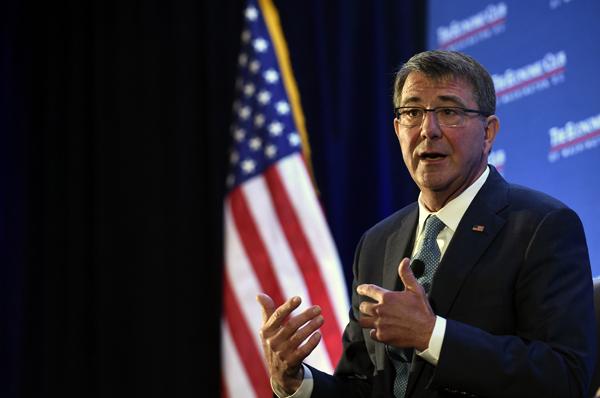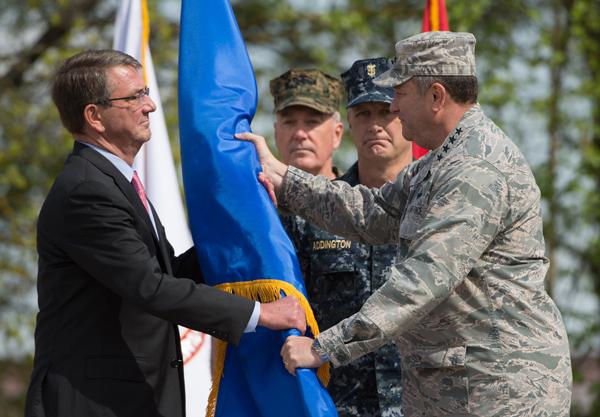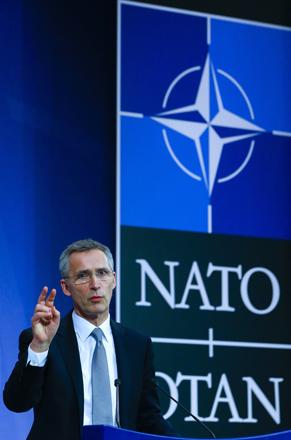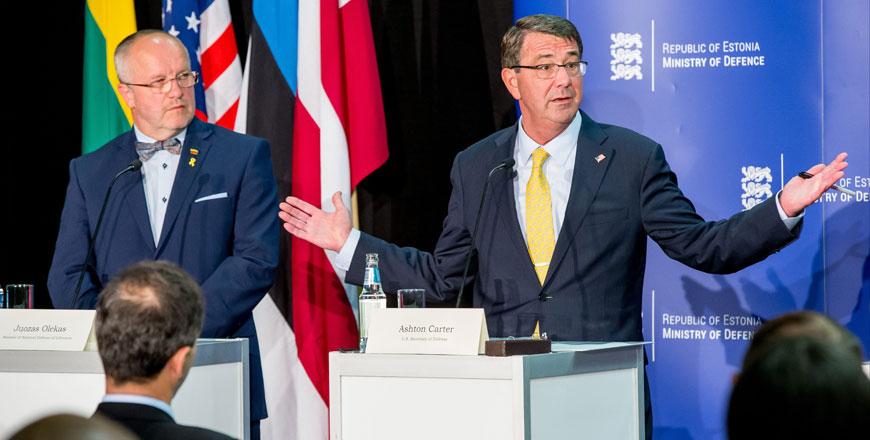You are here
US proposes more Pentagon funding for Europe aid, equipment
By AP - Feb 02,2016 - Last updated at Feb 02,2016

Defence Secretary Ash Carter speaks about the upcoming defence department's budget, on Tuesday, during a speech at the Economic Club of Washington in Washington (AP photo)
WASHINGTON — The Obama administration said Tuesday it will propose quadrupling what it spends on its troops and training in Europe, as part of the US military's accelerating effort to deter Russia.
President Barack Obama, in his final budget request to Congress, will ask for $3.4 billion — up from $789 million for the current budget year — for what the Pentagon calls its European Reassurance Initiative, which was announced in 2014 in response to Russia's annexation of Crimea and incursion into eastern Ukraine. The president was also calling for a 50 per cent increase in spending on the war against the Daesh terror group, to $7.5 billion.
Defence Secretary Ash Carter, giving an overview of the administration's proposed 2017 defense budget of $582.7 billion, described Russia as a growing challenge for the United States. He said the US was taking a "strong and balanced approach" to deterring its former Cold War foe.
"We haven't had to worry about this for 25 years, and while I wish it were otherwise, now we do," Carter said in a speech to the Economic Club of Washington.
Obama, warning that Russia had taken an "aggressive posture" near NATO countries, called it a "challenging and important time" for the alliance, whose members in Europe are increasingly concerned about Russia's intentions after its incursions in Ukraine. He said the US had taken decisive steps to bolster NATO since the start of Russia's actions in Ukraine, but that it hadn't been enough.
"It is clear that the United States and our allies must do more to advance our common defense in support of a Europe that is whole, free, and at peace," Obama said.
NATO's top civilian official, Secretary-General Jens Stoltenberg, issued a statement applauding Carter's proposed increase in spending in Europe.
"This is a clear sign of the enduring commitment by the United States to European security," he said. "It will be a timely and significant contribution to NATO's deterrence, and collective defence."
Addressing the beefed-up request for funding to fight Daesh, Carter said US warplanes have been striking the extremist group in Iraq and Syria with so many precision-guided bombs and rockets that "we're starting to run low" on some types. "So we're investing $1.8 billion in 2017 to buy over 45,000 more of them," he said.
Carter also discussed proposals to boost spending on cutting-edge technologies and efforts to modernise the force to deal with longer-term threats.
The Pentagon's proposed 2017 spending plan will be unveiled next week as part of the federal budget proposal. The officials were not authorised to discuss the matter publicly so spoke on condition of anonymity.
Over the past six months, during trips to Eastern Europe and in NATO meetings, Carter has pledged additional military support for the region.
The 2016 budget for military activities to reassurance allies covered the costs of sending hundreds of US troops in and out of Europe for short deployments, military exercises and other training missions. Carter's proposal to quadruple that amount would allow the US to send more troops to Europe for short-term deployments and also provide additional equipment and improve facilities so that more forces could be accommodated.
In Tallinn, Estonia, last June, Carter stood with defense chiefs from Estonia, Latvia and Lithuania and announced that the US would spread 250 tanks, armored vehicles and other military equipment across six of the former Soviet bloc nations.
And he promised NATO that the US would contribute weapons, aircraft and forces, including commandos, for the alliance's new rapid reaction force.
The Pentagon has already increased the pace of troop rotations in and out of Europe, providing training and other advice and assistance to the region. The increased US military activity is seen as an effort to deter Russia from taking any further aggressive action against any other nations there.
Russia's aggressive military intervention in Ukraine has worried Eastern European nations, who fear they may be next. But for much of southern Europe, the bigger concern is the growing threat from the Daesh group.
The proposed spending spike comes a year after the defense department unveiled sweeping plans to consolidate its forces in Europe, taking thousands of US military and civilian personnel out of bases mostly in the United Kingdom and Portugal, in an effort that was expected to save about $500 million each year.
The changes involved mainly army and air force personnel and facilities, and would cut the number of US defense workers in the United Kingdom by about 2,000.
The cutbacks in Europe are being driven largely by overall reductions in the size of the army and Marine Corps, as well as the Pentagon's much-discussed new emphasis on Asia.
Related Articles
STUTTGART, Germany — Defence Secretary Ash Carter used a US military changing-of-the-guard ceremony Tuesday to blast Russian aggression in E
BRUSSELS — NATO is ready to agree on Wednesday its boldest steps yet to deter Russia from any attack in the Baltics or eastern Europe, setti
TALLINN, Estonia — The US will spread about 250 tanks, armored vehicles and other military equipment across six former Soviet bloc nations t














